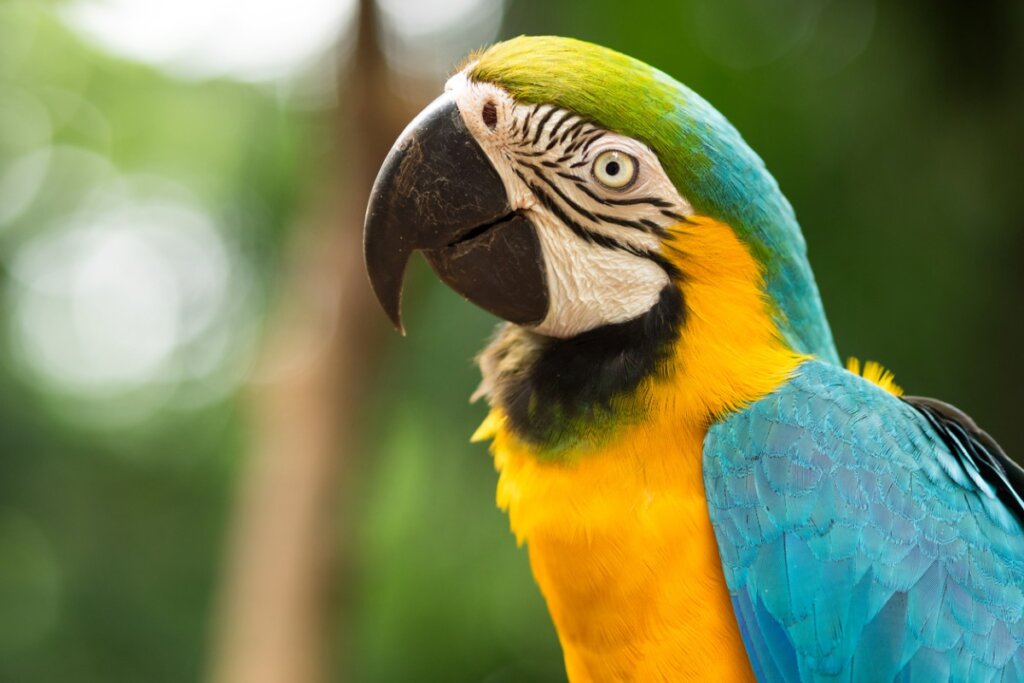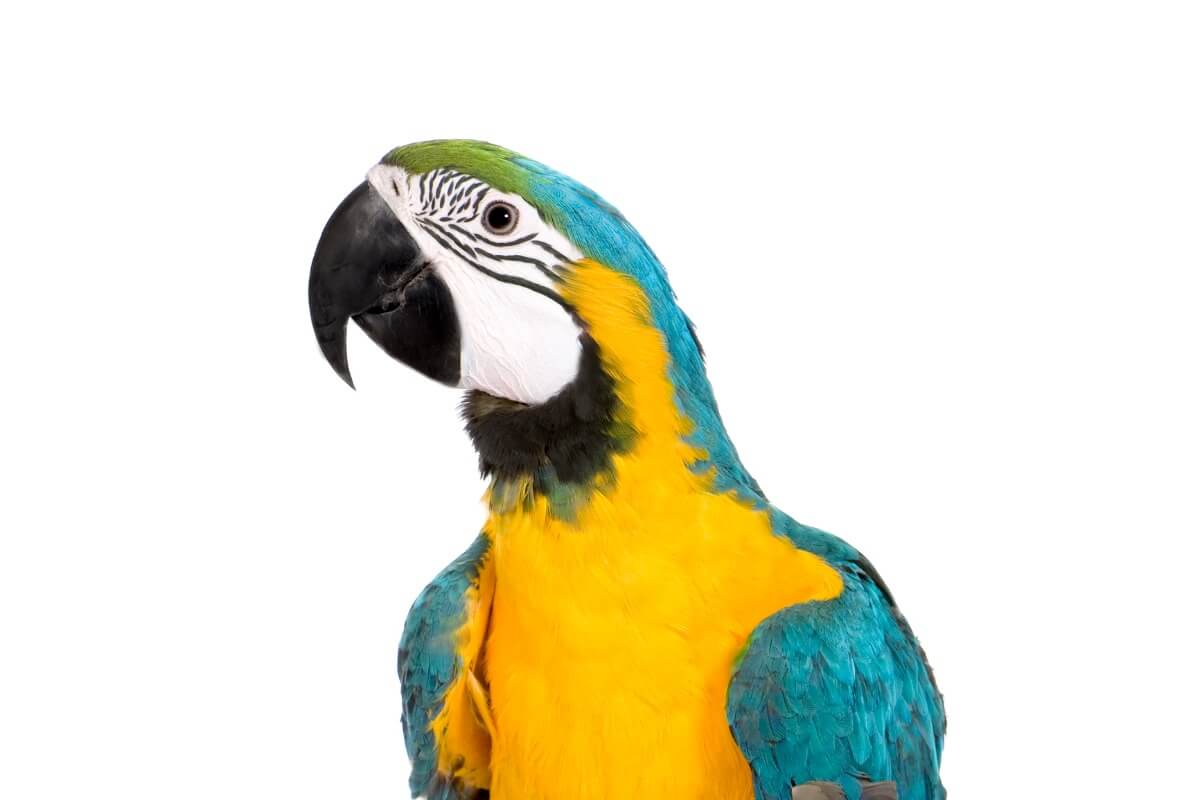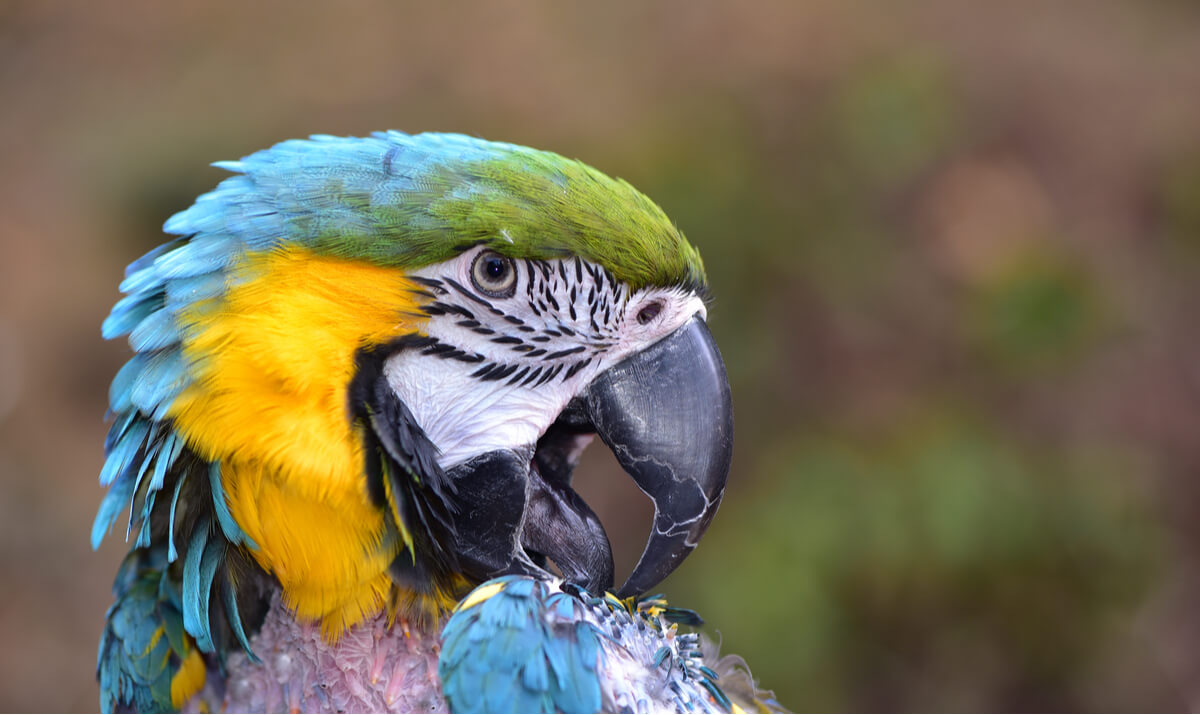Can I Keep a Macaw as a Pet?

Having a macaw as a pet is possible, as long as you have all the papers in order. However, taking one of these exotic birds home involves many factors to consider apart from obtaining it from a legal source, as they’re complex animals both psychologically and also in the care they require.
If you’re currently finding out information about these wonderful birds before you decide if you want to share your life with one of them, then you’re going about things the right way. Why? Because you have to be totally clear about all their care needs before acquiring one. Here you’ll find a lot of very useful information in this regard.
Is it legal to keep a macaw as a pet?
The first thing you need to be sure about is whether you’re committing a criminal offense by acquiring a macaw. Almost all psittacine species, including several of the Ara genus (to which macaws belong), can only be purchased from certified breeders.
The sale and purchase of these species is regulated by the CITES convention (Convention on International Trade in Endangered Species of Wild Fauna and Flora), which divides the species into 3 appendices according to their conservation importance. If the species of macaw you want to buy is in appendix I, then its possession and trade will be prohibited except with rare exceptions.

What legal procedures must be carried out?
To find out if the species you want is included in any of these appendices, you can consult all the official information here. However, by way of a summary, we’re going to give you some of the requirements here, explained in simple terms:
- The macaw must be identified: This means that it must have a solderless identification ring or a microchip (preferably the latter). This must be accompanied by each bird’s papers in order, which the breeder must provide you with.
- If the animal is imported: If the animal is being transported from a country other than your own, an additional import permit is required. You should ask for this a month or so in advance of purchase so that everything will be in order when the animal goes through customs.
- Permits for wild-caught birds: To take macaws out of the wild for commercial purposes, the supplier must have the capture and export permits in order. All such documentation must be made available to you.
The identifying information on the documentation and on the ring or chip must match. If not, then you can be sure that it will be illegal to own that particular macaw. Possession of CITES I listed species without a valid certificate can be punishable by fines or even imprisonment.
What does a macaw need in my home?
Once you’re sure that it’s legal to keep a macaw as a pet in your country, the next thing to do is to assess whether you can take care of it at all levels. Here are the requirements of these species in captivity.
Financial outlay
Owning a psittacine involves an almost constant outlay of money. From its diet, which includes daily feed and fresh vegetables, to exotic veterinarian costs, it’s always expensive to own a macaw.
Remember that you’ll have to give it a diet that’s close as possible to what it eats in its place of origin: the rainforests of South America. You shouldn’t skip regular check-ups at the vet, as birds tend to hide the symptoms of illness until they’re already serious. Veterinary treatments are usually long and expensive.
Investment of time
When we talk about investing time in a macaw, we’re not only talking about spending time with it every day. Remember that it’s a very long-lived animal and its life expectancy can be up to 70 years. If you were to leave this world before your bird, would anyone be able to care for it?
As for their day-to-day lives, psittacines require a great deal of time from their caregivers. They’re as intelligent as a 7-year-old child and form stable pairs, so they’re prone to emotional dependence. Consequently, they aren’t animals that can be left alone all day.
Space requirements
As large birds, macaws need a cage large enough to spend time inside without getting stressed. In addition to this, you’ll have to adapt your home to eliminate all dangers, because they can’t be locked up all day. Therefore, your home should be of a suitable size for your bird to be comfortable.
Emotional investment
This aspect isn’t often talked about, but it’s just as important as the others. This is a complex bird, both in basic care and in their education and emotional management. Although they’re great company, and can give you so much enjoyment, birds of this type also require a lot of patience.
These birds are capable of causing real damage with their beaks. Until they learn not to express their anger by pecking, you’ll have to put up with it without appearing to be in pain. In addition, you’ll have to teach them that your partner isn’t their enemy, that they should only break things that are meant to be broken, and so on and so forth.
Get used to the loud cries, as this is the way psittacines communicate.
Is it ethical to have a macaw as a pet?
Of course, here at My Animals, we can never defend taking an animal out of its environment and forcing it to live in a house with a human. However, when animals are bred for this purpose, the line between the ethical and the immoral is a lot more blurry, as it then depends on each person’s individual conscience.

Apart from the legal side, consider to what extent it’s okay for you to have an animal in your home that hasn’t gone through a domestication process and whose body is designed for a totally different life. This isn’t to say that a macaw can’t be happy under your care, but remember that, ultimately, the decision to bring it into your home isn’t by mutual consent.
All cited sources were thoroughly reviewed by our team to ensure their quality, reliability, currency, and validity. The bibliography of this article was considered reliable and of academic or scientific accuracy.
- Herrera, M., & Hennessey, B. (2007). Quantifying the illegal parrot trade in Santa Cruz de la Sierra, Bolivia, with emphasis on threatened species. Bird Conservation International, 17(4), 295-300.
- Brightsmith, D. J. (2001). The Tambopata Macaw Project: Developing techniques to increase reproductive success of large macaws. AFA Watchbird, 28(3), 24-32.
- Brooks, D. M., & Begazo, A. J. (2001). Macaw abundance in relation to human population density in the western Amazon basin. In Avian Ecology and Conservation in an Urbanizing World (pp. 427-437). Springer, Boston, MA.